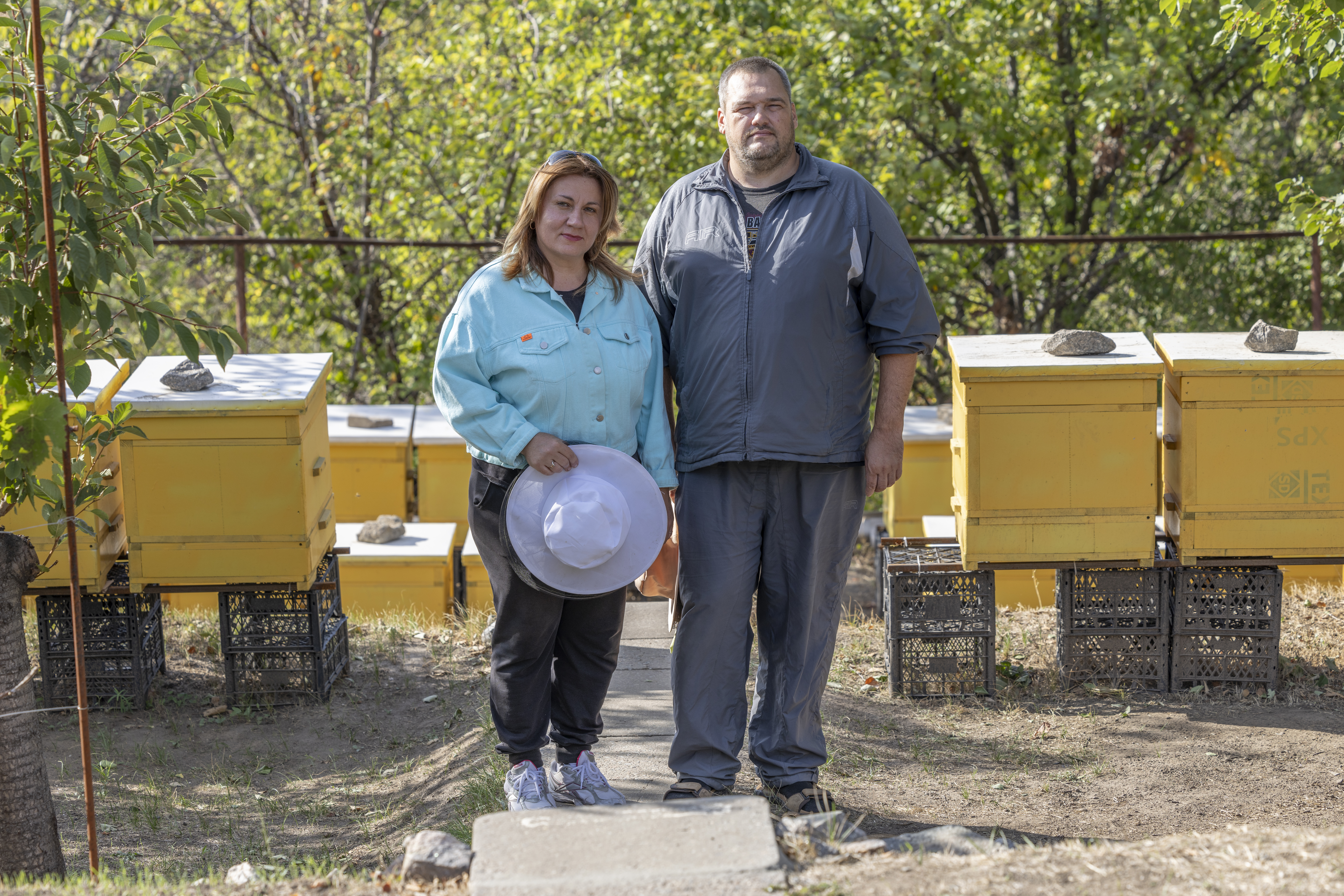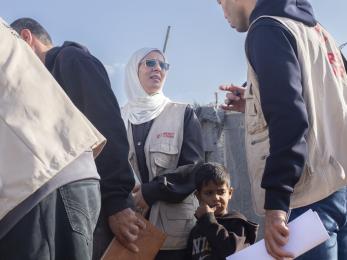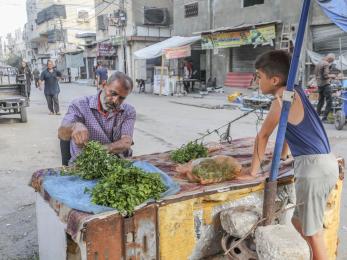Hurricane Melissa relief: What Mercy Corps is doing and how you can help
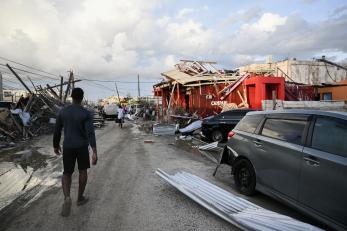
Communities across the northern Caribbean are grappling with the devastating impact of Hurricane Melissa.
Catastrophic flash floods, landslides, and powerful winds have left behind widespread destruction—damaging homes, roads, power systems, and communication networks. As floodwaters recede, they carry risks of waterborne illness, debris, and electrical hazards, posing ongoing dangers for families and responders alike.
Mercy Corps is responding in Jamaica and Haiti, with potential plans to expand into the Bahamas.
What’s the damage from Hurricane Melissa—and what do communities need?
Hurricane Melissa has claimed dozens of lives across Jamaica, Haiti, and the Dominican Republic, with authorities continuing to verify casualties.
In Jamaica, 6,000 people are displaced and entire communities have been cut off—particularly in the western parish of St. Elizabeth. Roads remain submerged, and search and recovery efforts are underway, including helicopter deployments to reach isolated areas. While greater Kingston was largely spared, rural communities were hit hard, with significant damage to infrastructure and housing.
In Haiti, although Melissa did not make landfall, relentless rain triggered deadly floods. At least 25 people lost their lives—most in Petit-Goâve, where an overflowing river devastated the area. More than 1,000 homes were flooded, 12 people are still missing, and nearly 12,000 individuals are sheltering in emergency sites.
In the immediate aftermath, families urgently need:
- Clean water
- Nutritious food
- Safe shelter
- Basic household supplies and hygiene support
The damage has been extensive. It’s been catastrophic.
Paula Watson-Popo, Infrastructure Manager
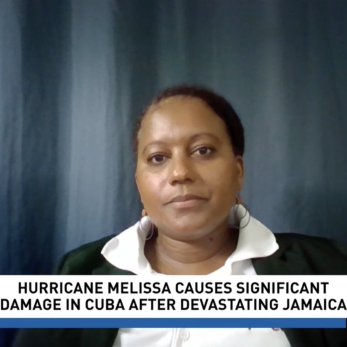
"It will be a long road to recovery," said Paula Watson-Popo, the Mercy Corps Caribbean Resilience Initiative Infrastructure Manager, while appearing on a KATU news story about Mercy Corps’ emergency response. Watch the segment here.
How is Mercy Corps responding?
Mercy Corps is taking swift action to support communities affected by Hurricane Melissa.
We know that communities themselves are the first responders in major emergencies. That’s why Mercy Corps works in partnership with trusted local organizations that have deep roots with communities and local expertise. Together, we coordinate resources, provide technical and logistical support, and mobilize funding to help scale impact safely and efficiently.
In Jamaica: We are partnering with the Seprod Foundation, a trusted local organization with over 30 years of experience, to deliver immediate aid—ensuring communities receive what they need, quickly and efficiently.
In Haiti: We are assessing the full extent of the damage with our partners and launching a response focused on:
- Water, sanitation, and hygiene (WASH) services
- Distribution of chlorine tablets and hygiene kits to prevent cholera and other waterborne illnesses
- Support for families through emergency supplies and cash assistance
In both countries, our teams and partners are also working to prevent an urgent public health emergency. The risk of disease outbreaks like dengue is rising fast, and early reports of cholera and acute diarrhea highlight the urgent need for clean water, sanitation, and medical support.
Mercy Corps teams in Haiti and Jamaica are already on the ground supporting local partners and authorities to address these urgent health risks by providing clean water and hygiene support, including distribution of water purification tablets, portable filters, water storage containers, and hygiene kits containing soap, detergent, sanitary pads, and baby hygiene items.
Beyond the storm: Long-term resilience
Before Melissa, Mercy Corps was already helping Caribbean communities prepare for disasters—because readiness saves lives.
- We’ve reached over 40,000 people with disaster preparedness training, community drills, and early warning systems.
- We support 7,100 farmers with climate-smart agriculture to protect crops and income.
- We’ve helped 900 small businesses store food and supplies to stay resilient during crises.
- We’re partnering with local community centers to create Resilience Hubs, which are equipped with clean water, food, emergency communications technology, solar panels and off-grid power to charge devices and keep medications refrigerated, as well as critical emergency supplies to jumpstart a community's ability to cope and recover.
For every $1 invested in disaster preparedness, communities save $7 in recovery. Mercy Corps is committed to supporting not just recovery, but long-term resilience—so that when the next storm comes, communities are ready.
How you can help
Help us rush aid to families impacted by Hurricane Melissa—and support communities around the world as they recover and rebuild from climate disasters.
